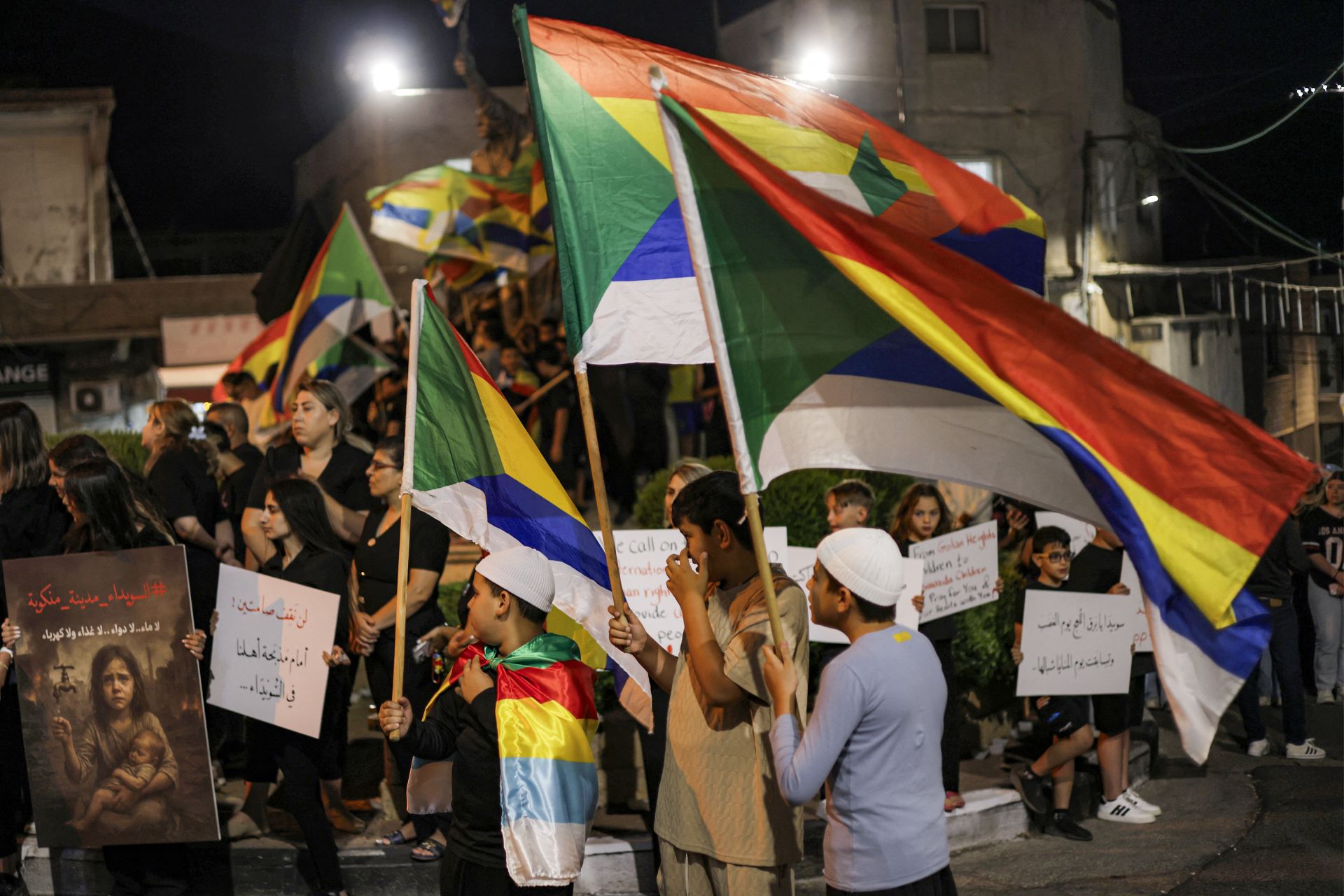- Home
- Middle East
- Druze Fighters Regain Control of Syria’s Sweida City

Members of the Druze community in the Israel-annexed Golan Heights gather for a rally in solidarity with the Druze community in Syria in the village of Majdal Shams in the Golan on July 19, 2025. ©Jalaa MAREY / AFP
Druze fighters pushed rival armed groups out of Syria's Sweida on Saturday, a monitor and an armed group said, regaining control of the city even as clashes persisted in other parts of the violence-hit province.
The Syrian Observatory for Human Rights monitor said that "tribal fighters withdrew from Sweida city on Saturday evening" after Druze fighters launched a large-scale attack.
Syrian interim President Ahmed al-Sharaa earlier on Saturday had announced an immediate ceasefire in the southern province, which has seen seven days of deadly violence.
Sectarian clashes between the Druze and Bedouin have drawn in the Islamist-led government, Israel and armed tribal fighters from other parts of Syria, killing more than 900 people in Sweida province, according to the Observatory.
The Britain-based monitor, which relies on a network of sources inside Syria, said on Saturday that fighters from the Druze minority regained "control of the whole of Sweida city" after hours of clashes.
It said that tribal fighters continued to bombard the city after their withdrawal, and that clashes were ongoing elsewhere in the province.
On Saturday morning, Bedouin and tribal fighters were still in Swieda city's west.
But in the evening, Bassem Fakhr, spokesman for the Men of Dignity, one of the two largest Druze armed groups, told AFP there was "no Bedouin presence in the city".
"We are committed to the ceasefire but the Bedouin are attacking us from several areas outside the city," he said.
Local news outlet Suwayda24 reported heavy clashes in Ariqa, north of Sweida city.
Syria's Information Minister Hamza al-Mustafa told a press conference on Saturday evening that the ceasefire was still fragile, noting ongoing clashes in the province.
He said that after the first phase of the ceasefire which began on Saturday and involved the deployment of security forces to the province, a second phase would see the opening of humanitarian corridors.
Raed al-Saleh, Syria's minister for emergencies and disaster management, told state television that "the humanitarian situation is bad" and that convoys were waiting to enter Sweida when "the appropriate conditions" present themselves.
In Sweida city, where around 150,000 people live, residents have been holed up in their homes without electricity and water, with food supplies scarce despite repeated appeals for help.
AFP
Read more



Comments